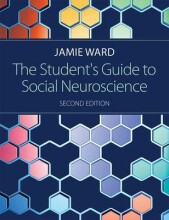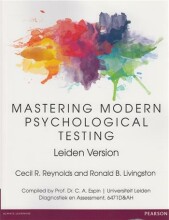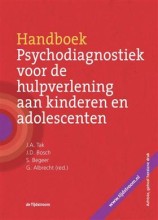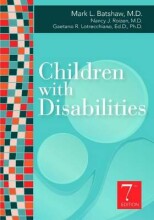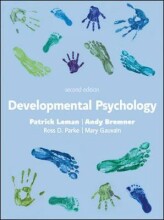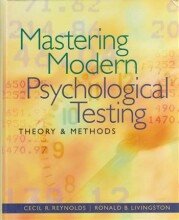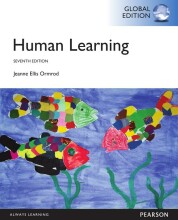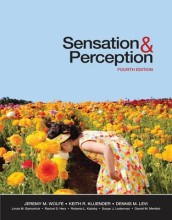Samenvatting: The Students's Guide To Social Neuroscience | 9781138908628 | Jamie Ward
- Deze + 400k samenvattingen
- Een unieke studie- en oefentool
- Nooit meer iets twee keer studeren
- Haal de cijfers waar je op hoopt
- 100% zeker alles onthouden
Lees hier de samenvatting en de meest belangrijke oefenvragen van The Students's Guide to Social Neuroscience | 9781138908628 | Jamie Ward
-
1 Introduction to social neuroscience
-
1.1 The emergence of social neuroscience
Dit is een preview. Er zijn 4 andere flashcards beschikbaar voor hoofdstuk 1.1
Laat hier meer flashcards zien -
Welke disciplines linkt de social neuroscience aan elkaar?
- LinktCognitieve psychologie aan sociale psychologie
-Linkt psychologie (geest/mind) aan biologie (brain/hersenen) -
1.2 The social brian?
Dit is een preview. Er zijn 3 andere flashcards beschikbaar voor hoofdstuk 1.2
Laat hier meer flashcards zien -
Wat is domain specificty?
Het idee dat een cognitief proces (regio in het brein) isgespecialiseerd om enkel één bepaald soortinformatie te verwerken.
Bijvoorbeeld alleen gezichtsherkenning of alleen maar emoties -
Welke drie domeinen worden er beschreven binnen de hersenstructuur?
- Emotie
- Sociale cognitie
- Cognitie
- Emotie
-
1.3 Is neuroscience an appropriate level of explanation for studying social behavior?
Dit is een preview. Er zijn 6 andere flashcards beschikbaar voor hoofdstuk 1.3
Laat hier meer flashcards zien -
Wat is de meest algemene kritiek op sociale neurowetenschap?
Dat het bekijken van de hersenen niet de meest geschikte manier is om sociale processen te verklaren. -
Wat moet ook bekeken worden om sociale processen te begrijpen naast het bekijken van de hersenen?
Deinteractie tussenmensen ,groepen vanmensen ensamenlevingen . -
Wat impliceert reductionisme ?
Eentype verklaring zal na een tijdje wordenvervangen door een andere meereenvoudige verklaring .
Concepten van de sociale psychologie worden vervangen door concepten van de neurowetenschap.
Relaties -> oxycotine (dus meer naar de basis) -
Wat wordt er geprobeerd bij een reverse inference ?
Er wordt een uitspraak gedaan over cognitieve processen (bang zijn) vanuit de neurowetenschappelijke data (amygdala). -
Wanneer de amygdala geactiveerd is dan is iemand bang. Hierbij is sprake forward/reverse* inference.
Sprake van reverse inference -
Ook al is de ___1____ inference correct, dit betekent niet automatisch dat de __2____ inference correct is.
1forward
2reverse Denk aan voorbeeld: forward: iemand is bang, de amygdala is actief reverse: de amygdala is actief, dan is iemand bang.. Maar dit hoeft niet zo te zijn. De amygdala is bijvoorbeeld ook actief bij dromen. -
Wat is het blank slate scenario?
Het idee dan het brein alle informatie die het wordt gegevenaccepteert ,bewaart enverwerkt zondervooroordelen , beperkingen en eerder opgedane kennis.
(Denk ook aan Tabula Rasa -> onbeschreven blad)
- Hogere cijfers + sneller leren
- Niets twee keer studeren
- 100% zeker alles onthouden
Onderwerpen gerelateerd aan Samenvatting: The Students's Guide To Social Neuroscience
-
Introduction to social neuroscience
-
The methods of social neuroscience - Measuring behavior and cognition: psychological methods
-
The methods of social neuroscience - Measuring bodily responses
-
The methods of social neuroscience - BOXES - Neuronen
-
Evolutionary origins of social intelligence and culture
-
Emotion and motivation - Historical perspectives on the emotions
-
Emotion and motivation - Different categories of emotion in the brain
-
Emotion and motivation - Motivation: reward and punishment, pleasure and pain
-
Reading faces and bodies - Perceiving faces
-
Reading faces and bodies - Perceiving bodies
-
Reading faces and bodies - Joint attention: from perdeption to intention
-
Reading faces and bodies - Trait inferences from faces and bodies
-
Understand others - Theory of mind and reosoning about mental states
-
Understand others - Explaining autism
-
Interacting with others - Altruism and helping behavior
-
Interacting with others - Game theory and social decision-making
-
Relationships - All you need is love
-
Relationships - Attachment
-
Groups and identity - Ingroups. outgroups, and prejudice
-
Morality and antisocial behavior - The neuroscience of morality
-
Morality and antisocial behavior - Anger and aggression
-
Developmental social neuroscience - The nature and nurture of social cognition
-
Developmental social neuroscience - Social learning during infancy
-
Aantekeningen Geheugen
-
Stress artikel
